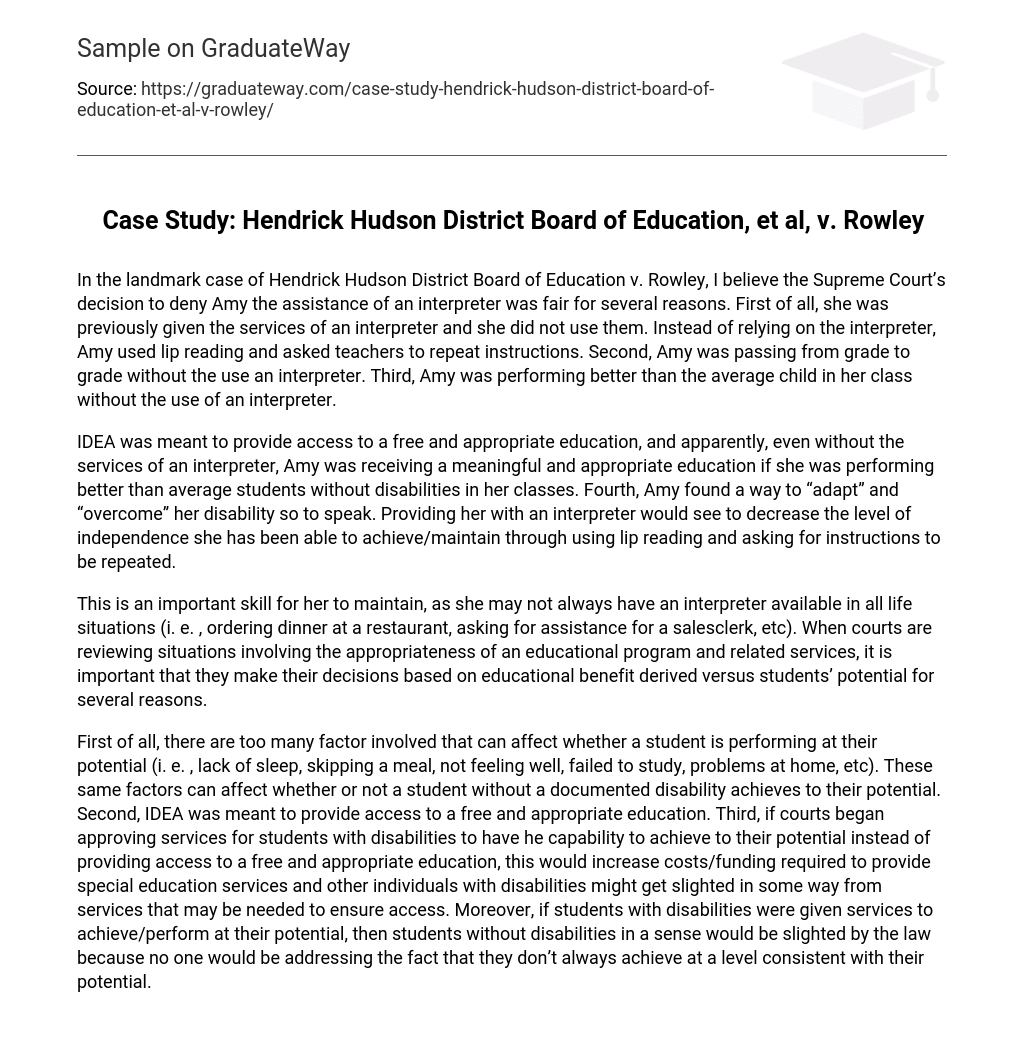In the landmark case of Hendrick Hudson District Board of Education v. Rowley, I believe the Supreme Court’s decision to deny Amy the assistance of an interpreter was fair for several reasons. First of all, she was previously given the services of an interpreter and she did not use them. Instead of relying on the interpreter, Amy used lip reading and asked teachers to repeat instructions. Second, Amy was passing from grade to grade without the use an interpreter. Third, Amy was performing better than the average child in her class without the use of an interpreter.
IDEA was meant to provide access to a free and appropriate education, and apparently, even without the services of an interpreter, Amy was receiving a meaningful and appropriate education if she was performing better than average students without disabilities in her classes. Fourth, Amy found a way to “adapt” and “overcome” her disability so to speak. Providing her with an interpreter would see to decrease the level of independence she has been able to achieve/maintain through using lip reading and asking for instructions to be repeated.
This is an important skill for her to maintain, as she may not always have an interpreter available in all life situations (i. e. , ordering dinner at a restaurant, asking for assistance for a salesclerk, etc). When courts are reviewing situations involving the appropriateness of an educational program and related services, it is important that they make their decisions based on educational benefit derived versus students’ potential for several reasons.
First of all, there are too many factor involved that can affect whether a student is performing at their potential (i. e. , lack of sleep, skipping a meal, not feeling well, failed to study, problems at home, etc). These same factors can affect whether or not a student without a documented disability achieves to their potential. Second, IDEA was meant to provide access to a free and appropriate education. Third, if courts began approving services for students with disabilities to have he capability to achieve to their potential instead of providing access to a free and appropriate education, this would increase costs/funding required to provide special education services and other individuals with disabilities might get slighted in some way from services that may be needed to ensure access. Moreover, if students with disabilities were given services to achieve/perform at their potential, then students without disabilities in a sense would be slighted by the law because no one would be addressing the fact that they don’t always achieve at a level consistent with their potential.





